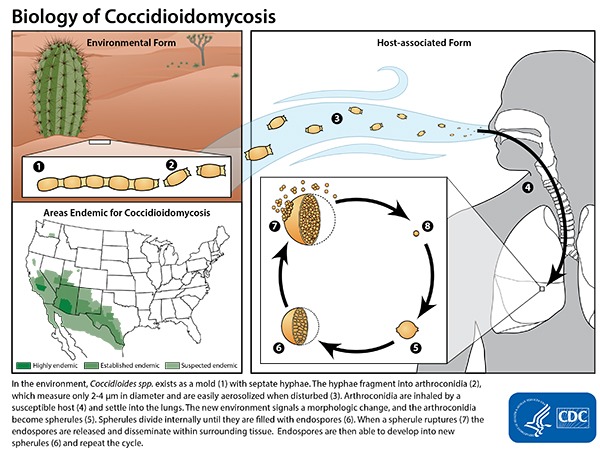Construction companies in 10 California counties will be required to train their employees about valley fever risks and symptoms under a new law authored by Assemblyman Rudy Salas, D-Bakersfield, and signed recently by Gov. Gavin Newsom.
Assembly Bill 203 is intended reduce the time lost and medical expenses, when people working outside breathe in invisible spores and end up contracting the airborne fungal disease also known as coccidioidomycosis.
The legislation was supported by industry and labor groups, bakersfield.com reports.
Salas said the Centers for Disease Control and Prevention has estimated almost three-quarters of people with valley fever miss work or school and that up to 40 percent are hospitalized for treatment, at an average cost of $50,000.
The assemblyman also pointed to a study suggesting that between 1940 and 2015, more than half of outbreaks were associated with exposure on the job.
“Workers who get valley fever often don’t know that they are infected until the symptoms become too hard to ignore and then they end up in the hospital, unable to work,” he said in a news release.
“But, if we can make sure that employers and workers are using the best methods of prevention, and make sure that they can identify the symptoms to get diagnosed and treated early, it makes all the difference in terms of improving health outcomes for vulnerable workers.”
The state Department of Public Health has reported a 52 percent increase in valley fever cases in California between 2016 and 2018, to 8,187 initial reports.
Valley fever has no vaccine or cure and is often mistaken for a cold or a flu. The CDC says 150,000 cases go unreported every year in the United States.
Salas referred to a 2016 valley fever outbreak in which nine cases of the disease were confirmed among employees of a solar farm in Monterey County. The CDC later asserted outdoor workers in such areas “should be trained by employers about the potential for infection, how to limit dust exposure, how to recognize symptoms, where to seek care and how to ask a health-care provider to assess them for coccidioidomycosis.”
Salas’ bill applies to all employers in Kern and 10 other counties that do construction, alteration, painting, repairing, construction maintenance, renovations, removals or wrecking of any building or part of a structure.
These companies can comply with the law by providing standalone training or by including valley fever education as part of an injury and illness prevention program required of them by Cal-OSHA.
Employers required to provide training under the bill will have to begin doing so by May 1.
